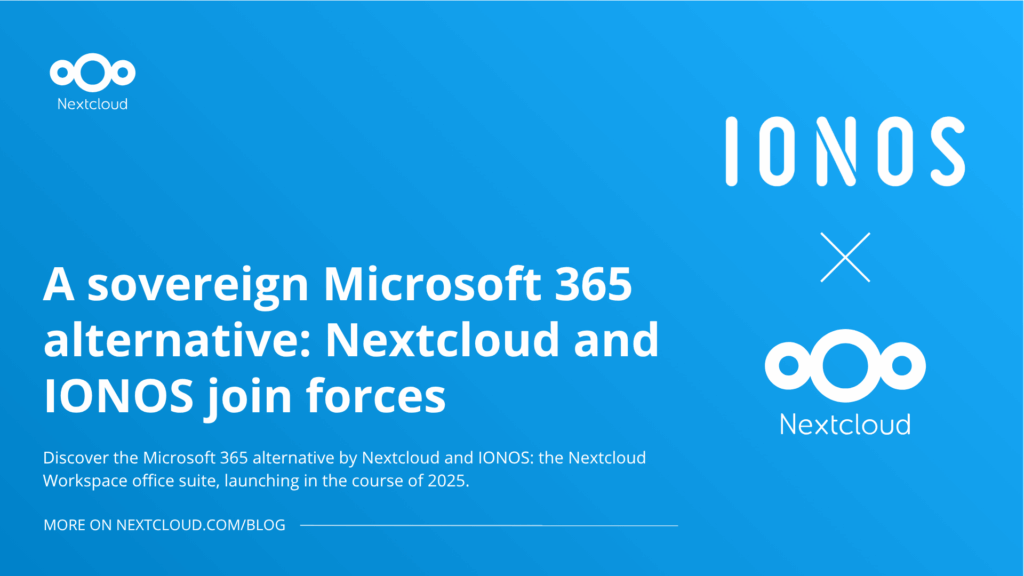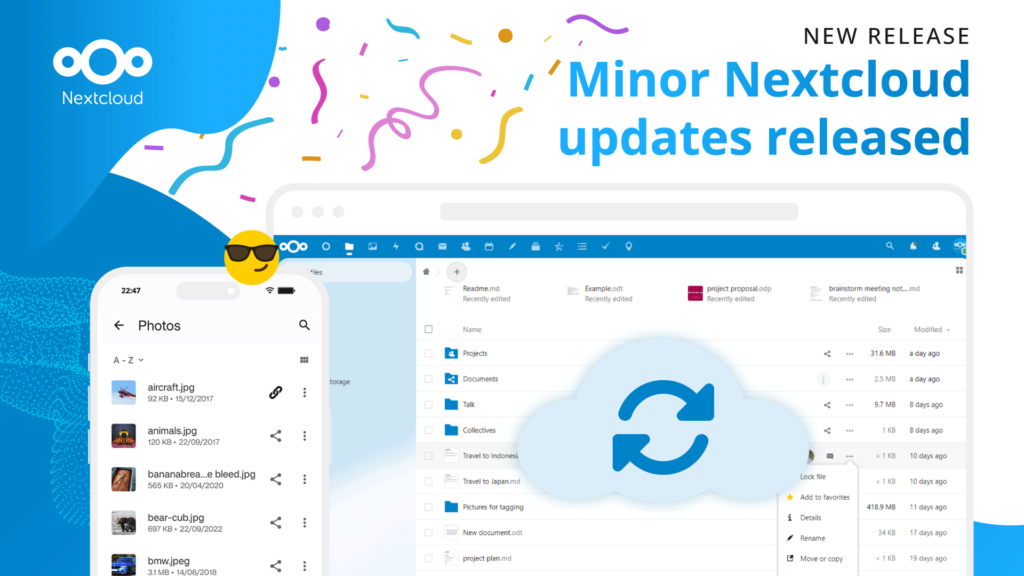Get up-to-date with the new Nextcloud updater
As you might know the Nextcloud 9.0.54 and 10.0.1 releases came with a new updater. This new updater allows reliable upgrading to new Nextcloud versions via the web and in the upcoming 11 release even via the command line interface.
However, as they lack the new updater, versions before 9.0.54 currently receive no update notifications. Neither do the have an easy way to update via the built-in updater. As there are still a significant number of users on Nextcloud 9.0.53 and these users are potentially at risk of security breaches and missing stability bugs, we devised an easy way to upgrade to a newer release. Users of 9.0.53 and older will receive a notification pointing to this blog so they can follow the steps and get to a new Nextcloud, easily and safely.
Seven steps
To upgrade an older Nextcloud system without manually having to extract and replace the files, follow these instructions:
1. Log into your server with SSH or FTP and go to the folder where Nextcloud is installed, for example /srv/www/htdocs/nextcloud
2. Delete the file updater/index.php. The folder updater/ can be found in the subfolder of the folder where you installed your Nextcloud.
3. Create a new file updater/index.php. Copy-paste this content into it and save it.
4. Add the following at the end of your /config/config.php file, right before the line consisting of );:
'updater.server.url' => 'https://updates.nextcloud.com/updater_server/',
5. Log into Nextcloud. In your admin panel go to the updater section and switch to the channel «production» and then to «stable». This ensures that your update cache is cleaned.
6. Reload the admin page with F5. You should now see an update notification to the Nextcloud 10 release. Scroll down to the «Updater» section and follow the instructions in the updater app.
7. When upgraded, remove the updater.server.url line that you’ve added to /config/config.php
Congratulations! Now you are on an up-to-date version with a properly working updater including update notifications for the admin account.
Those who prefer to do the entire process from the command line can grab this file, put it in the updater subfolder of Nextcloud and run it with php updater.phar
If you run the command but get no output whatsoever, check if you have the php-phar module is installed on your system. You can check by running php -m | grep -i Phar and looking at the output. If you get nothing, phar is not installed. You have to install it, running zypper in php7-phar or the equivalent for your distribution. Once you get notified that there is a new version, follow the instructions to install it.
We apologize for the inconveniences caused by the broken updater and are constantly working on improving the updater experience. And your help is welcome! If you manage to discover a bug in our new updater while upgrading to Nextcloud 11 Release Candidate you can earn a free T-Shirt.










